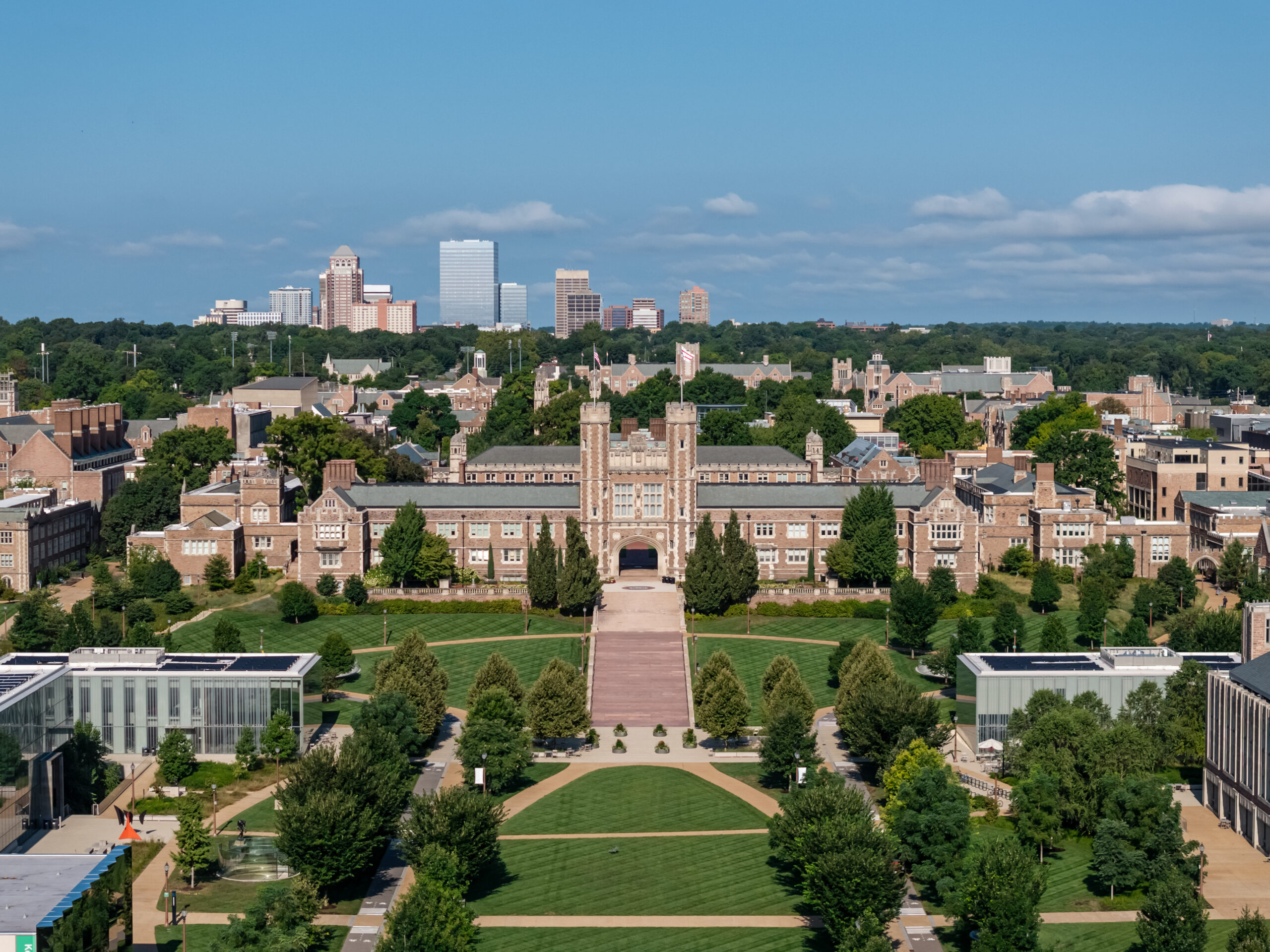
WashU’s Board of Trustees is the chief governing body of Washington University in St. Louis.
Since 1853, the Board of Trustees has exercised fiduciary responsibility and provided strategic oversight to ensure the university’s resources are effectively stewarded for the benefit of future generations. Today, the university’s trustees aspire to be the most informed, engaged, and impactful governing body in all of higher education in support of the university’s mission to utilize education, research, and patient care to improve lives in service of the greater good. This is achieved in a culture that is rooted in integrity and trust, fosters deep commitment, utilizes focused decision-making, embodies visionary leadership, promotes shared governance, and ultimately cultivates a rewarding trustee experience.
“Our goal is to emerge as the best informed, most engaged and most impactful Board in all of higher education.”
Board Chair Andy Bursky
The Board of Trustees is made up of dedicated individuals from the corporate, educational, governmental and volunteer sectors of the St. Louis community, nationwide and abroad. While many trustees are alumni of the university, alumni status is not a requirement. Responsibilities of trustees include faithful and consistent participation in Board and Committee meetings, adherence to the principles of shared governance, and a commitment to a deep understanding of the trends and issues facing not only the university, but also higher education generally.
FAQs
The Board of Trustees welcomes suggestions of individuals to be considered for trusteeship from any person or group associated with or interested in WashU. This includes self-nominations.
If you’d like more information on the nomination process, please email Rebecca Brown.
While WashU administration, faculty, and staff serve to implement and execute the operations of the university, the role of trustees is to help guide policy, provide oversight, and provide approval through vote.
Among its many responsibilities, the WashU trustees:
- Appoint the chancellor
- Review and approve or disapprove annual budgets
- Review and approve or disapprove major capital expenditures
- Make final decisions on awards of tenure and degrees, and on new degree programs
- Oversee the university’s endowment
- Above all, a deep commitment to the university’s mission to utilize education, research, and patient care to improve lives in service of the greater good.
A select number of students are chosen each year to serve as representatives to the Board of Trustees. While the student representatives are not voting members of the Board, it is a distinct honor to be chosen as well as an opportunity to contribute to the work of the Board and to learn, first-hand, about the responsibilities of the chief governing body of the University. In addition to attending meetings, in some cases those representatives may also attend meetings of standing committees of the Board.
A regular trustee term is four years. After completing one term, a trustee may be eligible for re-election.
The full Board meets five times per year. The Executive Committee meets prior to each Board meeting and at other intervals throughout the year. Trustees also meet in their respective committees and other working groups at various points throughout the year.
The Washington University Investment Management Company (WUIMC) was established in 2006 and manages the university’s endowment and related assets. The Board of Trustees has delegated oversight of the university’s investment policy and strategy to WUIMC’s Board of Directors. More information about the endowment, including an Annual Report, is available on the WUIMC webpage.